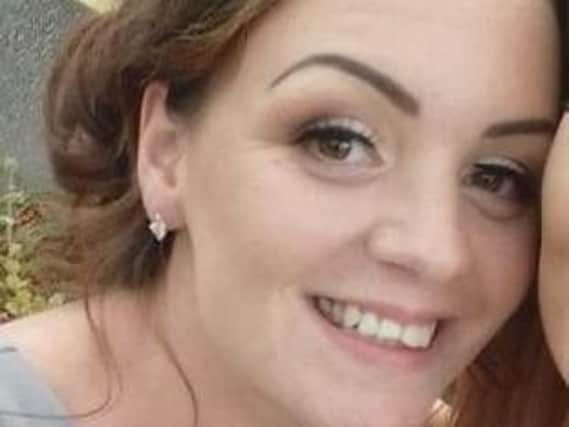Wigan mum called 999 minutes before her death


Keylie Barker, of Worsley Hall, was found dead in a patch of woodland off Montrose Avenue on February 25 after a night of drinking and taking cocaine, leaving behind three young children.
A hearing, held at Bolton Coroners’ Court, took evidence from her distraught friends who had been partying with Keylie into the early hours of the morning before her body was found.
Advertisement
Hide AdAdvertisement
Hide AdCoroner John Pollard, heard how 28-year-old Keylie had called 999 in the hour leading up to her death, from an area not far from where her body was found but that the call had been abandoned.
Paramedics had been dispatched to a nearby field after the call was tracked by emergency services, but sadly they were unable to find her. A member of the public made the shocking discovery just minutes later.
Keylie was described as a healthy young woman with a “normal” family life which involved normal “ups and downs”.
Evidence given by her partner of 13 years, Steven Speakman, explained how Keylie had struggled with depression in the past, seeking psychological help while he was in prison between 2013 and 2016.
Advertisement
Hide AdAdvertisement
Hide AdHowever, the devastated dad said in his statement that things had improved until the last two months of her life.
On the night before her death, Keylie told her partner that she would not be drinking as she planned to take her son to a rugby match in the morning.
At around 7.15am the following morning, her partner went downstairs where he believed Keylie was sleeping, to find her dressing gown on the sofa and the back door unlocked.
According to the tragic mum’s friend Sinead Chadwick, Keylie’s plans had quickly changed on the night before her death, despite telling Steven she would be staying in, and she was soon at a friend’s house where she was “laughing and joking”.
Advertisement
Hide AdAdvertisement
Hide Ad“She was happy,” he said in his statement. “She came back to the house with Sinead later on singing and dancing and asked if Sinead could stay over.”
Sinead told Mr Pollard how Keylie had had “three or four glasses of vodka” but had not seemed drunk.
After leaving their friend’s house in the early hours of the morning, the two women returned to Keylie’s before calling another friend, Leigh Bannister, to pick them up.
Leigh, visibly upset, told the coroner how the women had driven to Pemberton to get alcohol and cocaine “from a man” before going back to her house.
Advertisement
Hide AdAdvertisement
Hide AdMr Pollard heard how Leigh had left the house for a short while with her sister and sister’s partner and that when she returned she passed Keylie and Sinead leaving her house.
“They were laughing and singing as they left the street,” she added.
An investigation into Keylie’s death conducted by D.I. Paul Rollinson, determined that no one else was involved in her death and that there were no conclusions to be drawn other than Keylie had hanged herself.
The inquest heard how, at around 7.10am, a call had been made by Keylie to the emergency services, during which she told the operator that there was a woman “asleep in the field”.
Advertisement
Hide AdAdvertisement
Hide Ad“That call was made with the intention of police officers being dispatched,” said Mr Pollard.
“Was she hoping that police will be able to come and find her body? Or was she hoping they would be able to get there before any harm was done to her?”
A toxicology report found a “recreational” level of cocaine in her system, and 108 mcg of alcohol in 100 ml of blood, not even twice the drink-driving limit. However, Mr Pollard noted findings from Julie Evans, a forensic expert who examined the results, which recorded a level of cocaethylene, a substance produced when alcohol and cocaine are taken together.
Cocaethylene is believed to lower inhibitions and even create a “low mood” or “depressive” effect in users.
Advertisement
Hide AdAdvertisement
Hide Ad“Keylie had three children who she was extremely fond of and them of her,” added Mr Pollard. “Family life was going on as normal family life does most of the time.
“We then have the introduction of an element which is not normal, a situation where she was going out, spending the whole night out drinking a fair amount - it’s that taking of drugs which is a significant factor.
“That amount of cocaine even linked with that amount of alcohol will not lead to someone’s death but what it does is have a twisting effect on the mind - you don’t think clearly.
“I’m quite satisfied it has altered her state of mind. I don’t think for one minute she would have gone out to harm herself without the alcohol and cocaine.”
Mr Pollard gave an “open” conclusion, telling Keylie’s distraught family that he was unable to ascertain if she had deliberately taken her own life.